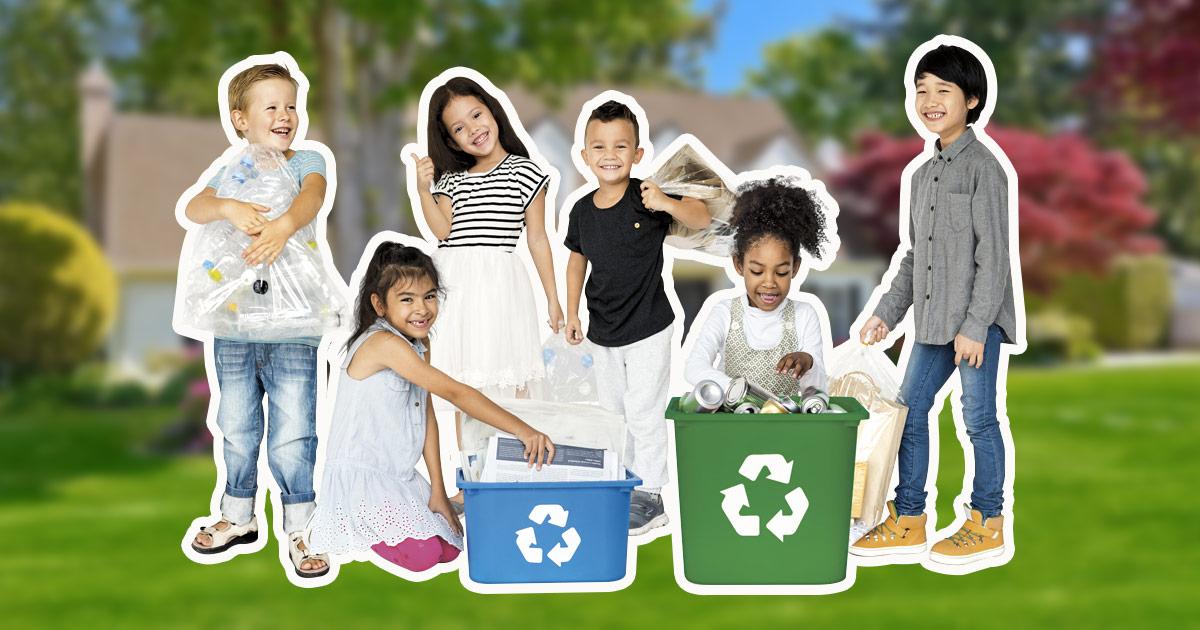Engaging Recycling Activities for Kids: Fostering Environmental Responsibility

Recycling plays a crucial role in our efforts to protect the environment and create a sustainable future. It is a process that transforms waste materials into new products, reducing the need for extracting and manufacturing raw materials. Recycling helps conserve natural resources, reduce pollution, and minimize the negative impacts of waste disposal.
While the responsibility of recycling falls upon all of us, teaching children about its importance from an early age is especially vital. By instilling the value of recycling in children during their formative years, we can foster a generation that understands the significance of responsible waste management, both at home and at school.
Explaining Recycling to Preschoolers
When it comes to teaching preschoolers about recycling, it’s essential to use simple and engaging language that they can comprehend. Start by explaining to them that recycling is like giving a second life to objects that we no longer need or use.
Emphasize that recycling helps to protect the Earth and keep it clean and healthy. Show them examples of everyday items that can be recycled, such as plastic bottles, paper, and cardboard. Encourage them to ask questions and be curious about the process.
Teaching Kids about Recycling
To effectively teach kids about recycling, it’s crucial to make it fun and interactive. Here are some activities and approaches that can help children learn and appreciate the importance of recycling:
Sorting Game: Provide different bins or containers labeled with pictures or symbols representing different materials such as paper, plastic, glass, and metal. Let the children sort various items into the correct bins, teaching them how to categorize and separate recyclable materials.
Art Projects: Encourage children to create artwork using recycled materials like old newspapers, magazines, and cardboard. This activity not only stimulates their creativity but also demonstrates how waste materials can be transformed into something beautiful and useful.
Recycling Relay Race: Organize a relay race where children need to collect recyclable items scattered around an area and sort them into the appropriate bins. This activity promotes teamwork, and physical activity, and reinforces the idea of responsible waste management.
Field Trips: Take children on educational field trips to recycling centers or waste management facilities. These visits allow them to witness the recycling process firsthand and understand how their actions contribute to a cleaner environment.
Storytelling and Books: Read age-appropriate books and stories that focus on recycling and environmental conservation. This helps children connect with the characters and the importance of recycling in a relatable and engaging way.
Pack a Waste-Free Lunch: Teach children about reducing waste by encouraging them to pack a waste-free lunch. Use reusable containers, water bottles, and cloth napkins instead of disposable alternatives. Discuss with them the importance of minimizing single-use items and how it helps the environment.
Go on a Recycling Scavenger Hunt: Create a fun scavenger hunt where children search for recyclable items in and around their homes or school. Provide them with a checklist of items like plastic bottles, aluminum cans, and paper products. This activity helps them develop observation skills while reinforcing the concept of recycling.
Donate Toys and Clothes: Encourage children to declutter their belongings and donate gently used toys and clothes to those in need. Explain that donating extends the life of these items and prevents them from ending up in landfills. This activity teaches empathy and the value of giving back to the community.
Make Recycling Bins for the Home: Engage children in a hands-on project of creating recycling bins for different materials. Decorate the bins with colorful labels and symbols representing paper, plastic, glass, and metal. This activity helps them understand the importance of proper sorting and disposal of recyclables.
Read and Watch Facts about Recycling: Introduce children to books, documentaries, and educational videos that focus on recycling and the environment. These resources provide valuable information and inspire discussions about sustainability. It helps them develop a deeper understanding of the impact of their actions on the world around them.
Children get valuable experience and education via these exercises and activities. Children can grow up to be environmentally aware adults who work toward a more sustainable world if they are given the tools to do so early on in life.
The Power of Leading by Example: Teaching Children Recycling Through Practice
Practicing sustainable parenting is an incredibly impactful method of teaching children about recycling. As a parent or teacher, your actions hold more weight than words alone. When children witness you actively participating in recycling, it reinforces the significance of this habit in their minds. You show true commitment to environmental stewardship by making recycling an integral part of your family’s lives, proving that recycling is more than just a theory to impart but a principle to preserve.
When children witness you separating recyclables from regular waste, using reusable bags and containers, and actively participating in community recycling programs, it leaves a lasting impression. They learn that recycling is not an abstract idea but a tangible practice that everyone can incorporate into their lives. They see the positive impact it has on the environment and understand that their small actions can make a big difference.
In conclusion, teaching children about recycling goes beyond mere instruction; it requires active participation and leading by example. As adults, when we model responsible behavior through recycling, we provide a good example for our children and students in terms of sustainability and environmental consciousness. When children are taught to recycle at a young age, they are more likely to continue the habit into adulthood, leading to a more environmentally friendly and sustainable society in the future.
